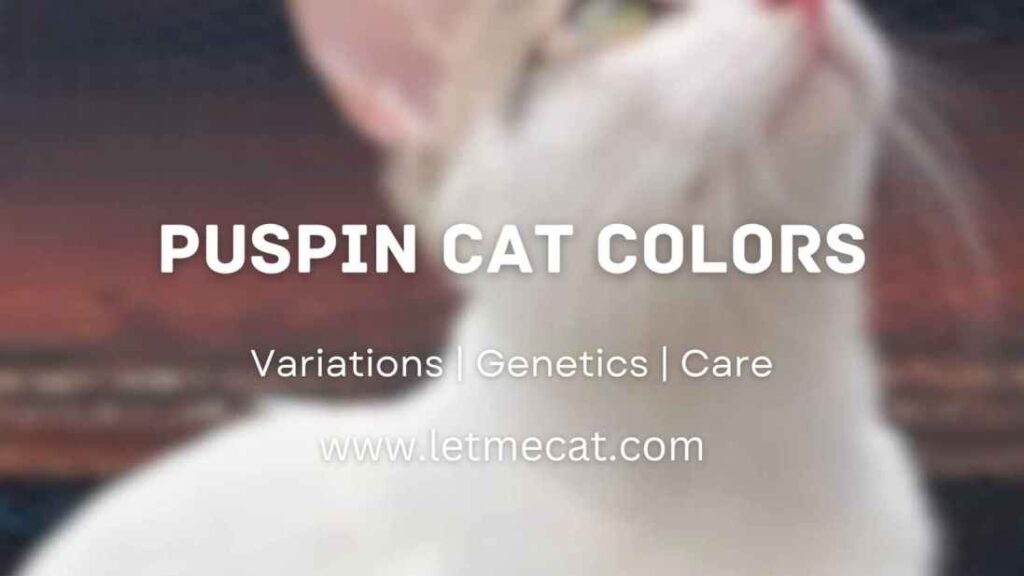In this article, we will explore the behavior of Puspin cats, providing insights into their social interactions, communication methods, playfulness, hunting instincts, grooming habits, sleeping patterns, dietary needs, training possibilities, and more.
1. Understanding Puspin Cats
Puspin cats come in various coat colors and patterns, displaying a range of characteristics influenced by their environment and individual upbringing. These cats exhibit a blend of independent and affectionate behaviors, making them suitable for different types of households. Understanding their behavior will help in creating a nurturing environment for these wonderful felines.
2. Social Behavior of Puspin Cats
Puspin cats are known for their friendly and sociable nature. They thrive in human companionship and enjoy interacting with their owners. While some Puspin cats may be more outgoing, others might be more reserved. It is important to respect their individual personalities and provide them with opportunities to socialize at their own pace.
3. Communication Methods of Puspin Cats
Like other cats, Puspin cats communicate through a variety of methods. They use vocalizations, body language, and scent markings to express their needs and emotions. Understanding their communication cues, such as purring, meowing, tail movements, and ear positions, will enable better communication between owners and their Puspin cats.
4. Playful Nature and Energy Levels
Puspin cats have a playful and energetic nature. They enjoy interactive play sessions and the stimulation provided by toys and games. Engaging in playtime activities not only helps in keeping them physically fit but also strengthens the bond between the cat and its owner.
5. Puspin Cats as Hunters
With their innate hunting instincts, Puspin cats are excellent hunters. They have a keen sense of sight, hearing, and agility, making them skilled at catching prey. It is important to provide them with appropriate outlets for their hunting behavior, such as interactive toys or puzzle feeders, to satisfy their natural instincts.
6. Grooming Habits of Puspin Cats
Puspin cats have a strong instinct for cleanliness and grooming. They spend a significant amount of time grooming themselves, which helps keep their coat healthy and free from tangles. Regular brushing and occasional bathing, as needed, will help maintain their coat and promote a healthy bond between the cat and its owner.
7. Puspin Cats and Their Sleeping Patterns
Puspin cats have distinct sleeping patterns. They are known to be crepuscular, meaning they are most active during dawn and dusk. However, they adapt well to their owner’s routines and can adjust their sleeping patterns accordingly. Providing them with cozy and comfortable sleeping areas will ensure they get the rest they need.
8. Eating Habits and Dietary Needs
Puspin cats have similar dietary needs to other domestic cats. A balanced diet that includes high-quality cat food, appropriate portions, and access to fresh water is essential for their overall health. Consultation with a veterinarian will help determine the specific dietary requirements based on the cat’s age, weight, and any medical conditions.
9. Training and Behavior Modification
While Puspin cats are generally intelligent and quick learners, their independent nature may require patience and positive reinforcement during training. Basic commands, such as sit, stay, and come, can be taught using reward-based training techniques. Behavior modification can also be used to address any undesirable behaviors effectively.
10. Puspin Cats and Children
Puspin cats can make wonderful companions for children. Their friendly and playful nature often makes them a great match for families. It is essential to teach children how to handle and interact with cats respectfully to ensure a harmonious relationship between the cat and the child.
11. Health Concerns for Puspin Cats
Puspin cats, like any other breed, may be susceptible to certain health concerns. Regular veterinary check-ups, vaccinations, and preventive treatments for parasites are vital to maintaining their well-being. It is important to be aware of common cat health issues and take necessary precautions to keep the Puspin cat healthy and happy.
12. Creating an Enriching Environment
To cater to their curious and active nature, it is essential to create an enriching environment for Puspin cats. This can be achieved by providing scratching posts, climbing structures, interactive toys, and safe access to outdoor spaces. Enrichment activities keep the cats mentally stimulated and prevent boredom-related behaviors.
13. Puspin Cats and Other Pets
Introducing a Puspin cat to a household with existing pets requires careful consideration and gradual introductions. Proper socialization, supervised interactions, and providing separate spaces for each pet can help in fostering positive relationships between the Puspin cat and other pets in the household.
Conclusion
Puspin cats bring joy and companionship to countless households in the Philippines. Understanding their behavior and providing them with a nurturing environment is essential for their well-being.
By respecting their individual personalities, engaging in interactive play, addressing their specific dietary needs, and providing proper healthcare, owners can create a strong and lasting bond with their Puspin cats. Thank you for reading it.



